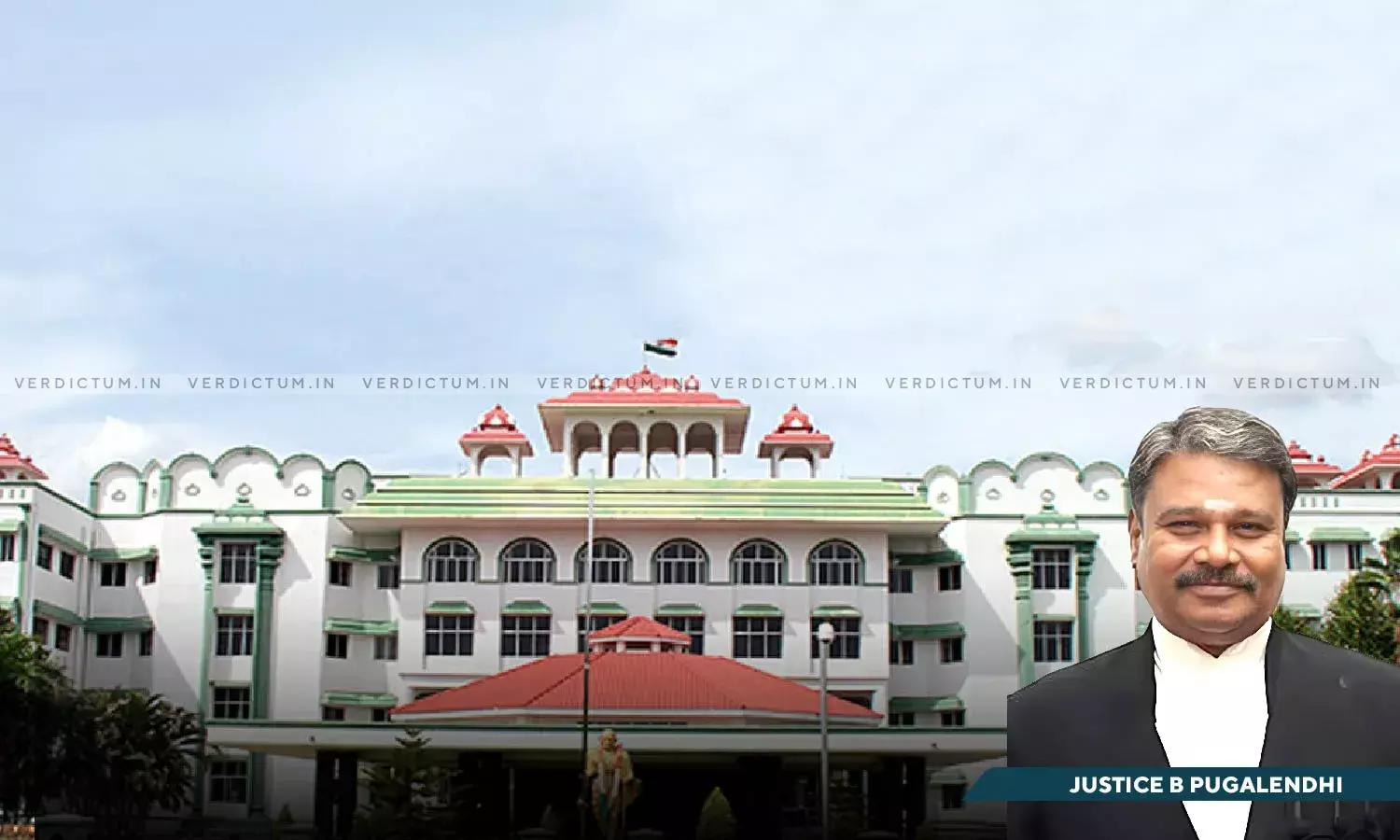Growing Tendency To Invoke Criminal Process In Private Relationship Disputes Must Be Checked: Madras High Court
The Criminal Original Petition was filed by the petitioner before the Madras High Court seeking to quash the proceedings in a case registered under Sections 69 and 351(2) of the Bharatiya Nyaya Sanhita, 2023.

Justice B. Pugalendhi, Madras High Court, Madurai Bench
While quashing a false promise to marry case registered against a man, the Madras High Court has held that the growing tendency to invoke the criminal process in private relationship disputes must be checked. The High Court further held that the law intervenes only where consent is vitiated by coercion, deception, or incapacity.
The Criminal Original Petition was filed by the petitioner seeking to quash the proceedings in a case registered under Sections 69 and 351(2) of the Bharatiya Nyaya Sanhita, 2023.
Talking about the concept of premarital intimacy, the Single Bench of Justice B. Pugalendhi stated, “The criminal process cannot be used to moralise private conduct or convert personal disappointment into litigation, as Courts deal with legality, not morality. The law intervenes only where consent is vitiated by coercion, deception, or incapacity.”
“Of late, this Court has witnessed an increase in complaints of this nature, where relationships voluntarily entered into are subsequently projected as instances of deception or breach of promise. Such matters, rooted in personal association and mutual choice, do not ordinarily warrant criminal prosecution. The growing tendency to invoke the criminal process in private relationship disputes must be checked, for the criminal law cannot be permitted to become a means for settling personal or emotional disputes”, it added.
Advocate P.Sathish Kumar represented the Petitioner, while Government Advocate (Crl. Side) A.S.Abul Kalaam Azad represented the Respondent.
Factual Background
It was the case of the prosecution that the de facto complainant, an Advocate enrolled in 2018 with the Bar Council of Tamil Nadu and Puducherry, was acquainted with the petitioner during her college days at the Government Law College, Madurai, while the petitioner was studying at the Madurai Kamaraj University. They developed a relationship, and it was alleged that the petitioner had sexual intercourse with her against her will, on the pretext that he was going to marry her. Thereafter, they were allegedly involved in a physical relationship. When the de facto complainant later enquired about marriage, the petitioner refused and he threatened her, citing caste differences. Hence, the complaint came to be filed.
Reasoning
Referring to Section 69 of the BNS, the Bench explained that the essential ingredient of this offence is that the accused must have had sexual intercourse by deceitful means or by making a promise to marry without any intention of fulfilling the same.
On a perusal of the facts of the case, the Bench noted that the relationship between the petitioner and the de facto complainant spanned several years from 2020 to 2025. As per the Bench, the de facto complainant, a law graduate and a practising Advocate, was well aware of the consequences. There was no material to suggest that the petitioner had a fraudulent or mala fide intent at the inception of the relationship. “The allegations indicate, at best, a breakdown of a consensual relationship, which by itself cannot attract the penal provisions of Section 69 of the BNS”, the Bench stated.
Reference was also made to the judgment in Prashant v. State (NCT of Delhi) (2024), wherein it has been held that criminal intimidation cannot be made out where the relationship between the parties was admittedly consensual and disputes arose only after the relationship ended.
“This Court is conscious of the prevailing social realities. It is a matter of fact that, in present times, instances of premarital intimacy between consenting adults are not uncommon. This Court makes this observation not to endorse or moralise such conduct, but to acknowledge the changing contours of personal relationships in contemporary society. The line between emotional attachment and physical relationship is often indistinct, and when such relationships end in discord, competing narratives frequently emerge about what transpired in private”, the Bench held.
Allowing the Criminal Original Petition, the Bench quashed the criminal proceedings.
Cause Title: Saravanan C v. State of Tamil Nadu (Neutral Citation: 2025:MHC:2570)
Appearance
Petitioner: Advocate P.Sathish Kumar
Respondent: Government Advocate (Crl. Side) A.S.Abul Kalaam Azad, Advocate S.Prabha

